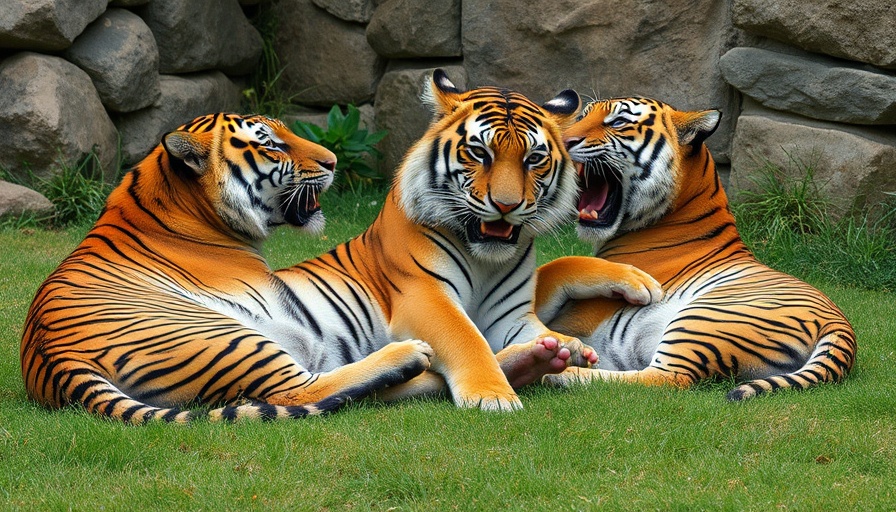
The Consequences of Keeping Exotic Pets: A Legal Perspective
Two men from Central Arkansas, Keidrick Damond Usifo and Deon Johnson, recently faced the consequences of a troubling trend: keeping exotic animals as pets. Their actions led to them being sentenced to probation and fines for violating the Big Cat Public Safety Act. Such laws have garnered attention due to the challenges associated with keeping wild animals in domestic environments, often resulting in serious legal repercussions.
Understanding the Big Cat Public Safety Act
Enacted by President Biden in December 2022, the Big Cat Public Safety Act aims to prohibit private ownership of big cats, including tigers, lions, and leopards. This legislation was partly a response to the massive popularity of the 2020 Netflix documentary Tiger King, which highlighted the dangers and ethical implications of exotic animal ownership.
Specifically, the act seeks to eliminate the risks not only to the animals but to public safety. In their case, Usifo and Johnson's decision to keep a tiger cub in a residential area resulted in multiple complaints from neighbors, revealing that such ownership poses significant safety concerns.
Why the Exotic Pet Trade is Dangerous
The illegal sale and ownership of exotic pets contribute to a host of problems, ranging from animal welfare to public safety issues. According to investigators, Usifo purchased a tiger cub from a broker in Dallas, Texas, which highlights the ongoing problem of tiger trafficking in the United States. This poses ethical questions about animal rights and the legality of sourcing wildlife across state lines for personal use.
Case Highlights an Ethical Dilemma
The situation involving Usifo and Johnson presents a moral quandary, not just for lawmakers but for society as a whole. Why do some choose to keep wild animals as pets despite the laws and ethical concerns? The answer often lies in a desire for uniqueness, fascination with exotic animals, and a lack of understanding of the responsibilities needed to care for such creatures.
Local Impact: What This Means for Arkansas Residents
For homeowners in Arkansas, this case resonates deeply as it serves as a reminder of the legal responsibilities and ethical implications associated with owning exotic pets. Awareness about the dangers posed by keeping wild animals can help foster a community that prioritizes animal welfare and respects wildlife regulations. Knowledge is power, and staying informed can prevent similar situations from occurring in the future.
Moving Forward: The Path to Responsible Wildlife Management
The outcome of Usifo and Johnson’s case emphasizes the necessity for stricter enforcement of wildlife laws and increasing public awareness about the dangers of exotic pets. As conservationists advocate for responsible pet ownership and wildlife protection, communities can come together to promote safe and humane interactions with animals. This serves as a turning point, encouraging residents to discuss implications of animal ownership before acquiring a pet.
 Add Row
Add Row  Add Element
Add Element 


 Add Row
Add Row  Add
Add 


Write A Comment